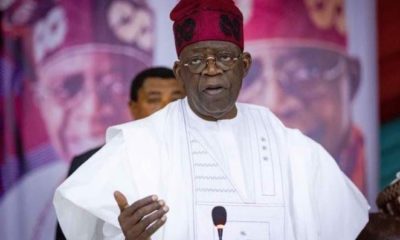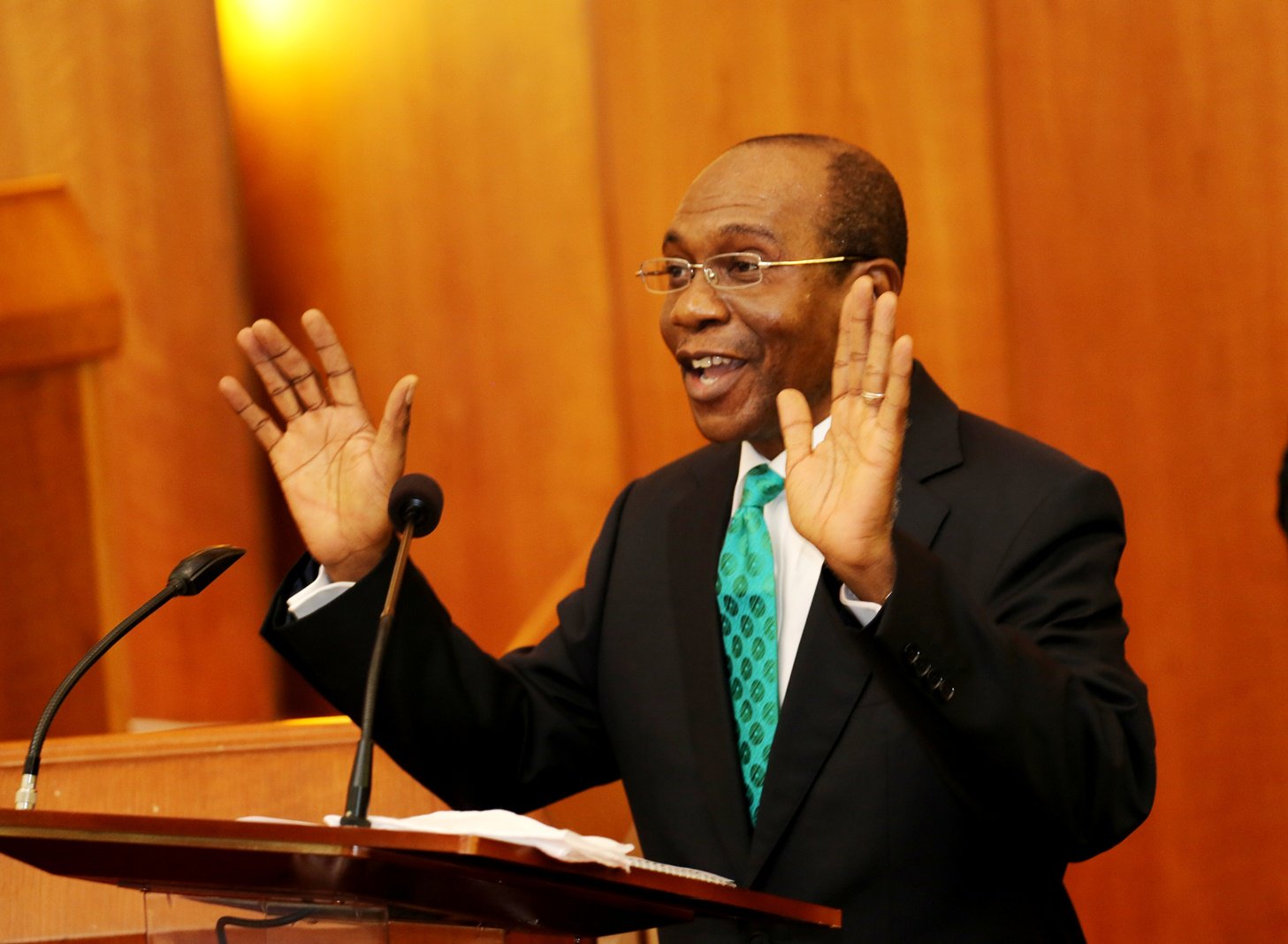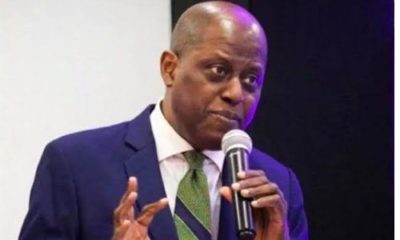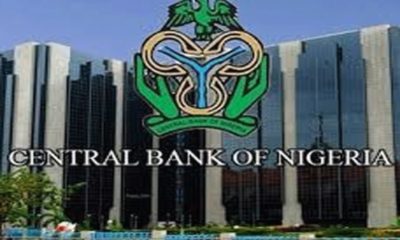Finance
Naira: Foreign investors shun bonds, equity market

LAGOS-FOREIGN investors have began to shun Nigeria’s bonds and equities market due to unwillingness of the Central Bank of Nigeria (CBN) to devaluation the naira as widely expected Markets have moved sharply in the past week in particular after the CBN announced further restrictions on dollar funding for investors, as well as for importers of goods ranging from toothpicks to private jets.
 The move, meant to conserve foreign exchange, has dashed widely-held expectations of naira devaluation – the central reform that investors had been banking on. Since then 10-year bond yields have jumped 1 percentage point to almost 15 percent, stocks have fallen and the naira’s value is plunging in the parallel market, down about 7 percent from early-June levels.
The move, meant to conserve foreign exchange, has dashed widely-held expectations of naira devaluation – the central reform that investors had been banking on. Since then 10-year bond yields have jumped 1 percentage point to almost 15 percent, stocks have fallen and the naira’s value is plunging in the parallel market, down about 7 percent from early-June levels.
A devaluation to restore the economy to competitiveness is a matter of time, fund managers still believe. In the meantime, they are unlikely to bring back cash they pulled out before the election. “It will take a combination of weaker currency and higher interest rates to get us back to Nigeria,” said Kieran Curtis, a bond fund manager at Standard Life Investments. “When we compare Nigeria to other oil exporters it hasn’t had enough of a currency adjustment.”
With oil exports providing 70 percent of budget revenues, Nigeria can certainly use a cheaper currency. Most had reckoned on a 10-15 percent devaluation at least and some such as Curtis estimate a 20-25 percent move is probably needed. Non-deliverable forwards (NDF), derivatives used to hedge against future exchange rate moves, reflect expectations of currency weakening: six-month NDFs price the naira at 225 per dollar, while a week ago the forward price was around 215.
“To me, (CBN bank measures) are doing more harm than good: you are putting off the inevitable and the reaction you are seeing on rates markets and the NDF shows that,” said Kevin Daly, a fund manager at Aberdeen Asset Management. “Effectively the bond market is starting to price in a much wider move on the currency.”
With oil revenues down and borrowing costs rising, the 2015 budget is already 3.2 percent smaller than last year’s. By early May, the government had already exhausted half its borrowing allowance for the year. Ten-year yields at almost 15 percent, 250 basis points above post-election lows, will raise borrowing costs for the government and the private sector.
“Ultimately (devaluation) will become more of a fiscal necessity than an external necessity. The longer they will take to do the adjustment, the bigger the adjustment would have to be,” said Antoon de Klerk, portfolio manager at Investec’s African Fixed Income Fund. And crucially for investment flows, Nigeria’s place in the GBI-EM local currency debt index looks increasingly precarious.
Vanguard-
Business
Nigeria pays US$4.9 billion on petrol subsidy in 2024- NNPCL
It was however noted by Biztellers.com.ng, that although subsidy is back in effect, the main reason for that is the increasingly weak state of the Naira and the country’s extreme dependence on products importation. Also unlike the previous subsidy era, where several oil marketers were getting free subsidy refunds for unverified product importation, this subsidy era is witnessing only one importer, the NNPCL, which in effect is the sole receiver of government subsidies.
Yemie ADEOYE
INSPITE of the official position of the Nigerian government that the controversial petrol subsidy is gone for good as announced by the President on assumption of office, the state owned Nigerian National Petroleum Corporation Limited, NNPCL has disclosed that petrol subsidy is still fully operational in Nigeria, although, under a different identity.
Umar Ajiya, Chief Financial Officer at the NNPCL, disclosed that it cost the company a staggering N7.8 trillion (US$4.9) to cover this price gap in the first seven months of 2024.
Rather than simply referring to these claims as subsidies, he stated that the company is merely managing the price difference in petrol imports on behalf of the federation, stressing that this should not be misconstrued as a return to subsidy payments.
![]() This revelation has reignited discussions on whether the NNPC is indirectly offering subsidies, a concept typically defined as selling a product below its cost price.
This revelation has reignited discussions on whether the NNPC is indirectly offering subsidies, a concept typically defined as selling a product below its cost price.
Documents reviewed by Biztellers.com.ng showed that the term “subsidy” was used extensively in official correspondence between the NNPCL and the presidency, particularly in reference to the “shortfall.”
Recall that President Bola Tinubu reportedly approved NNPC’s request to utilize the 2023 final dividends due to the federation to offset these costs.
However, during a media briefing on Monday about the company’s 2023 audited financial statements, Ajiya refuted claims that the NNPC is involved in any subsidy scheme.
Ajiya further disclosed that the Nigerian government owes the NNPC N7.8 trillion ($4.9 billion) in subsidy-related debts for the period from January to July 2024.
In furtherance of his clarification to the News Agency of Nigeria (NAN), Ajiya insisted that no subsidy payments have been made to any marketer in the last nine years, citing the NNPC’s role as the sole importer of petrol under supply contracts.
He said, “In the last eight to nine years, NNPC Ltd. has not paid anyone a dime as a subsidy; no kobo has been disbursed by NNPC Ltd. in the name of subsidy. No marketer has received any payment from us for subsidy.”
“What has been happening is that we have been importing PMS, which has been landing at a specific cost price, and the government tells us to sell it at half price. So the difference between the landing price and that half price is a shortfall.
“And the deal is between the Federation and NNPC Ltd., to reconcile, sometimes they give us money, so there is no money exchanging hands with any marketer in the name of subsidy.”
Ajiya remained silent on how much of the $4.9 billion could have been remitted to the federation account if the NNPC had not been covering the “shortfall.”
It was however noted by Biztellers.com.ng, that although subsidy is back in effect, the main reason for that is the increasingly weak state of the Naira and the country’s extreme dependence on products importation. Also unlike the previous subsidy era, where several oil marketers were getting free subsidy refunds for unverified product importation, this subsidy era is witnessing only one importer, the NNPCL, which in effect is the sole receiver of government subsidies.
Banking
CBN Denies Currency Devaluation

The Central Bank of Nigeria (CBN) has refuted claims of devaluing the.
Earlier reports suggested that the CBN had devalued the Naira, lowering its exchange rate from N631 to the dollar, compared to the previous day’s rate of N461.60 at the Importers and Exporters (I&E) window.
However, the Central Bank of Nigeria (CBN) released a statement on Thursday through its Acting Head of Corporate Communications, Dr. Isa Abdulmumin, categorizing the report as false information.
In the statement titled ‘CBN Has Not Devalued The Naira’, he said the attention of the apex bank was drawn to the news report by an Abuja based newspaper edition of June 1, 2023, titled “CB Devalues Naira To 630/51”.
However, the CBN stated categorically that the news report was replete with outright FALSEHOODS and destabilizing innuendos, ‘reflecting potentially willful ignorance of the said medium as to the workings of the Nigerian Foreign Exchange Market.’
“For the avoidance of doubt, the exchange rate at the Investors’ & Exporters (I&E) window traded this morning (June 1, 2023) at N465/USS1 and has been stable around this rate for a while.
“The public is hereby advised to ignore the news report by Daily Trust in its entirety, as it is speculative and calculated at causing panic in the market,” the CBN spokesman added.
He, therefore, advised media practitioners to verify their facts from the Central Bank of Nigeria before publishing in order not to misinform the public.
Banking
BREAKING: CBN Increases Interest Rate By 0.5%

The interest rate in Nigeria has been raised to 18.5 percent, up by 0.5 percent, from 18 percent where it was pegged in March 2023.
The Central Banks of Nigeria’s (CBN) Monetary Policy Committee (MPC) resolved to this effect at its third meeting of 2023 in Abuja, on Wednesday.
Governor, CBN, Godwin Emefiele, made the disclosure in the communiqué of the MPC’s meeting, thereafter.
While engaging the media at the end of the two-day meeting, Emefiele, said the committee voted to keep the asymmetric corridor at +100 and -700 basis points around the MPR.
In the view of the MPC, rising inflation rate is traceable to the high energy cost and challenges around the supply chain, among others, which lie outside the corridors of the CBN.
Emefiele said, “The current trend in price development would continue to be monitored by the bank with greater collaboration with fiscal authority to address the drivers of inflation.”
Biztellers reports that the CBN had effected six consecutive interest rate increases, which has seen the rate move from 11.5 percent in March 2022 to 18.5 percent in May 2023.






















